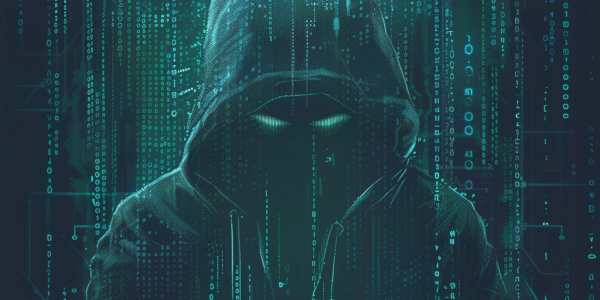Cybersecurity Threats Loom Over Paris 2024 Olympics
As the Paris Olympic Games approach, significant cybersecurity threats loom, particularly from Russian hackers. Experts warn that geopolitical tensions, especially the ongoing conflict in Ukraine, heighten the risk of cyber disruptions during the event. With around 10,000 athletes competing, the need for robust security measures is critical to ensure the integrity of the games amidst rising hacktivist activity and potential cyber-attacks.
Hacking Group Claims Responsibility for Breaching Apple’s Website and Leaking Source Code
A hacking group known as IntelBroker has claimed responsibility for breaching Apple’s website and leaking the source code of three commonly used tools, raising concerns about Apple’s internal system security. The group also stole AMD employees’ credentials and data related to the company’s future product roadmap, prompting an investigation by AMD.
The Importance of Hands-On Cybersecurity Training in the Face of Evolving Threats
Cyber threats are evolving rapidly, with attackers using AI to exploit vulnerabilities. Organizations must prioritize training their workforce to combat cyber attacks effectively to avoid severe consequences. Research shows human error is responsible for 74% of security breaches. Implementing hands-on cybersecurity training is crucial to developing essential skills and fostering a culture of vigilance. Embracing practical exercises is key to enhancing employees’ readiness and responding promptly to security incidents.
Challenges in Australian Cyber Defence
Recent developments in cyber security highlight the urgent need for improved cyber defence in Australia. With frequent hacks targeting various sectors and the government’s goal of becoming a global leader in cybersecurity facing challenges, organizations are advocating for legal clarity on ‘active cyber defence.’ As businesses grapple with cyber intruders, the use of ‘deception’ tools is proposed, but the legal landscape remains uncertain. The complexity of responding to cyber threats underscores the necessity for comprehensive cybersecurity strategies and regulatory frameworks.
Israeli Startup Turns Employees into ‘Human Firewalls’ Against Cyberattacks
Cywareness, an Israeli startup, is transforming cybersecurity training by utilizing AI to simulate realistic security breaches through emails and text messages. CEO Ori Attar aims to reduce the risk of cyberattacks by deceiving employees into recognizing and avoiding phishing attempts. With a unique AI simulation builder, Cywareness customizes phishing attacks for each company, streamlining the training process and enhancing security protocols.
Israel to Expose Identities of Iranian Cyberattack Group at Cybertech Global Tel Aviv
Gaby Portnoy, head of the Israel National Cyber Directorate (INCD), will expose the identities of hackers affiliated with the Iranian cyberattack group known as Black Shadow at the Cybertech Global Tel Aviv conference. The group, operating on behalf of the Iranian Intelligence Ministry, has been responsible for a series of cyber-attacks against Israeli companies and targets. Portnoy will reveal that the group operates undercover in Tehran and has attempted to attack a wide range of sectors in Israel, including academia, tourism, media, finance, transportation, health, government, and technology.
Scammers using fake AI services on Facebook to distribute malware
Scammers are using the allure of artificial intelligence features and services to dupe unsuspecting Facebook users into downloading malicious software on their computers. Security firm Bitdefender has uncovered a scheme where scammers hijack Facebook Pages and pose as legitimate AI services, promising early access to experimental AI research and products. Once users follow the Pages, the scammers post AI-generated content and instruct followers to download software, which is actually malware. Bitdefender discovered a popular Facebook Page, Midjourney AI, with 1.2 million followers before it was shut down by Facebook. However, new pages continue to crop up, creating a game of Whac-a-Mole. Users were directed to download software through Google Drive or Dropbox links, and inspecting the Pages would reveal they aren’t associated with the companies they claim to represent.
State Governments’ Role in Boosting K-12 Cybersecurity
State governments play a crucial role in providing assistance to fortify K-12 schools against digital threats. With the evolving landscape of cybersecurity threats, collaboration between federal and state governments is essential to create a comprehensive approach to K-12 cybersecurity.
New Cybercrime Software ‘GEOBOX’ Sold on Telegram Allows Hackers to Convert Raspberry Pi into Anonymous Cyberattack Tools
GEOBOX, a new cybercrime software sold on Telegram, allows inexperienced hackers to convert Raspberry Pi mini-computers into anonymous cyberattack tools. Priced at $80 per month or $700 for a lifetime license, the software enhances anonymity and complicates law enforcement tracking and investigation. Resecurity warns of the potential misuse of such cybercrime software and its impact on cybersecurity.









